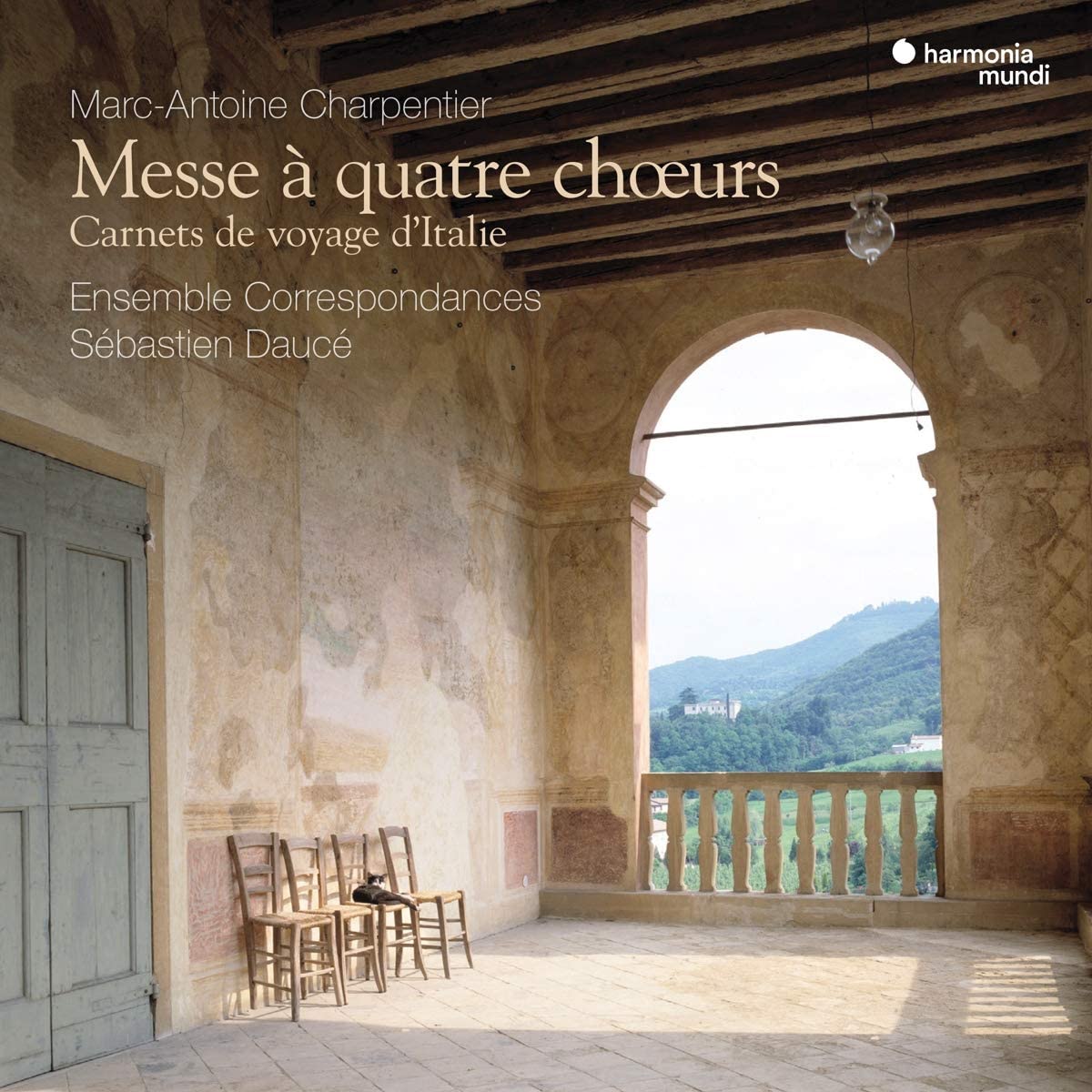Carnets de voyage d’Italie
Ensemble Correspondances, Sébastien Daucé
TT
hamonia mundi HMM902640
Click HERE to buy this on amazon.co.uk
This programme is one of those ‘the composer may have visited here, heard music like this and then written this’ concepts, in this case credible and not pushed too hard in Graham Sadler’s fluent note. Most of the music (roughly two thirds) of the music is Italian and excellent it is too, in both content and execution, so full marks to whoever did the painstaking research this kind of thing requires. Cavalli’s Sonata is the stand-out for me, but very much as a primus inter pares. Charpentier is represented by extremes – a motet for three unaccompanied voices (SSA) and his mass for four choirs. This is sonically splendid with rich antiphonal effects, though the tutti sections have choirs doubling each other so the number of simultaneous independent parts is never more than seven. My preference is always for masses to interspersed with other music and not treated like later symphonies (we do not even get the organ interludes Charpentier requests), but that aside this release is very strongly recommended for both content and performances, which are stylish and expressive but never self-indulgent.
David Hansell
This is one of two releases I have reviewed as downloads this month. As such it is not possible to comment in the usual way on the overall physical presentation of the package but a few comments on the download experience are appropriate. This is no longer a novelty, of course, and the process for both the music and the booklet is perfectly straightforward. However, any printing of the booklet material needs care and may need a few experiments with single pages to find the optimum settings for both size and format. In particular beware of pages that are black with white print (a bad design idea anyway) and you may not want to print pages that are not in your language or which contain material of only passing interest. And do not assume that all publications from the same source will work in the same way! Once you get there you will find an excellent programme note (French, English and German), but the sung Latin texts are translated into French only.
